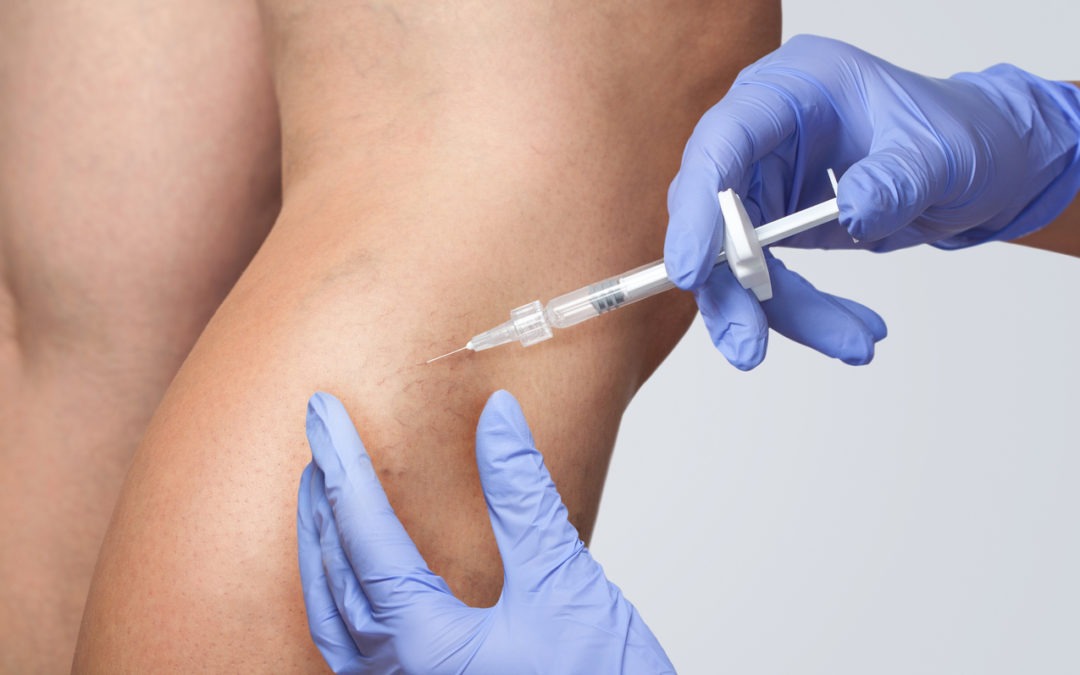If you are dealing with a condition such as varicose veins or spider veins, it’s important to schedule an appointment with a physician who will be able to properly diagnose and treat your condition. Unfortunately, many people are a little confused when it comes to which types of doctors specialize in vein treatment. To help clear up some of this confusion, we’ll take a look at the difference between a phlebologist and a dermatologist and discuss which one you should visit for vein treatment.
What is a Phlebologist?
A phlebologist is a vein doctor who specializes in the diagnosis and treatment of venous disorders. While phlebologists tend to focus on leg vein treatments, a phlebologist will sometimes diagnose and treat venous disorders in other parts of the body as well. Diagnosing and treating disorders such as spider veins, varicose veins, and deep vein thrombosis are all tasks that would fall under a phlebologist’s list of responsibilities.
What is a Dermatologist?
A dermatologist is a physician that specializes in diagnosing and treating conditions related to the patient’s skin, hair, and nails. There are more than 3,000 conditions that fall under a dermatologist’s area of expertise, including conditions such as eczema, acne, athlete’s foot, dermatitis, and skin cancer. While dermatologists are most well known for treating skin conditions, dermatologists are able to diagnose and treat conditions of the hair and nails as well, including conditions such as hair loss and bacterial paronychia.
Why You Should See a Phlebologist or Vascular Surgeon for Vein Treatment
Although a dermatologist may be the first physician that comes to mind when you think of vein treatment given that many vein disorders might seem like an exterior or cosmetic condition, dermatologists don’t actually specialize in treating venous disorders. Instead, venous disorders are the specialty of phlebologists and vascular surgeons.
So what’s the difference between a phlebologist and a vascular surgeon, and which one should you choose for your vein treatment? A phlebologist is able to perform simple treatments for disorders such as varicose veins and spider veins while a vascular surgeon specializes in treating the entire vascular system through more advanced surgical procedures. If you are suffering from a venous disorder, you will likely want to first schedule an appointment with a phlebologist. In most cases, a phlebologist will be able to provide the diagnosis and treatment you need to cure whatever venous disorder you might be suffering from. In the event that your disorder is more severe and requires surgery to treat, though, a phlebologist will be able to recommend you to a vascular surgeon in your area.
Treatments for Venous Issues
Varicose Vein Treatment
Varicose veins can be treated using several different procedures depending on their severity, including procedures such as laser ablation, sclerotherapy, and microsurgery.
Spider Vein Treatment
Spider veins found in the legs can often be treated using the same laser ablation and sclerotherapy procedures used to treat varicose veins. Spider veins in the nose and face, meanwhile, are typically treated with a procedure known as electrocautery.
Other Body Vein Treatments
In addition to varicose and spider veins, there is a wide range of other venous disorders that can occur throughout the body’s vascular system. Thankfully, there is an equally wide range of proven treatments for curing these various venous disorders.
Finding Vein Treatment in Manhattan, NY
If you would like to find a phlebologist in Manhattan, New York to diagnose and treat your venous condition then the expert phlebologists at the Schulman Vein and Laser Center are ready and able to help. To meet our vein physicians in Manhattan, NY and start treating your venous disorder in the most effective way possible, be sure to schedule an appointment today.

